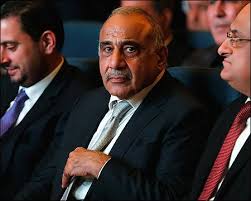Iraq Takes International Legal Action to Kick Unauthorized US Forces Out
"We ask the international community and the United Nations to perform their roles in this matter," Iraq's premier said.

Iraqi Prime Minister Adel Abdul Mahdi said United States troops withdrawing from northeast Syria do not have permission to stay in Iraq, adding that his government is taking “all international legal measures” in response to their unauthorized entry into the country.
“We have [already] issued an official statement saying that and are taking all international legal measures. We ask the international community and the United Nations to perform their roles in this matter,” the premier said.
The statement comes as U.S. Defense Secretary Mark Esper arrived in the country on Wednesday in an unannounced visit while reaffirming Tuesday’s statement from the Iraqi military which only allowed transit through Iraq for the U.S. troops.
“All U.S. forces that withdrew from Syria have received approval to enter the Kurdistan region to be transported out of Iraq, however, there is no permission for these forces to stay,” the statement read.
The Iraqi military statement contradicted the Pentagon’s announcement that all of the nearly 1,000 troops withdrawing from northern Syria are expected to move to western Iraq to continue the campaign against the Islamic State group (IS) and to help “defend” Iraq.
In addition, Esper said Tuesday during his visit to Saudi Arabia that the troops will be prepared in Iraq to return to their homeland, without specifying the deadline for their return.
“The goal is not to stay in Iraq endlessly but to withdraw our soldiers and eventually bring them back home,” Esper said at Prince Sultan Air Force Base near Riyadh.
Hundreds of vehicles carrying U.S. troops crossed the Syrian-Iraqi border through the Kurdish region of northern Iraq on Monday, and it is estimated that more than 5,000 troops are currently stationed in that Arab country under a bilateral agreement.
After the end of the war in 2011, the U.S. military presence in Iraq had diminished considerably, a fact that changed in 2014 with the threat of IS.
The U.S. military presence continues to be a sensitive and politicized issue as part of Iraqi society considers it an occupation.
*
Note to readers: please click the share buttons above or below. Forward this article to your email lists. Crosspost on your blog site, internet forums. etc.

